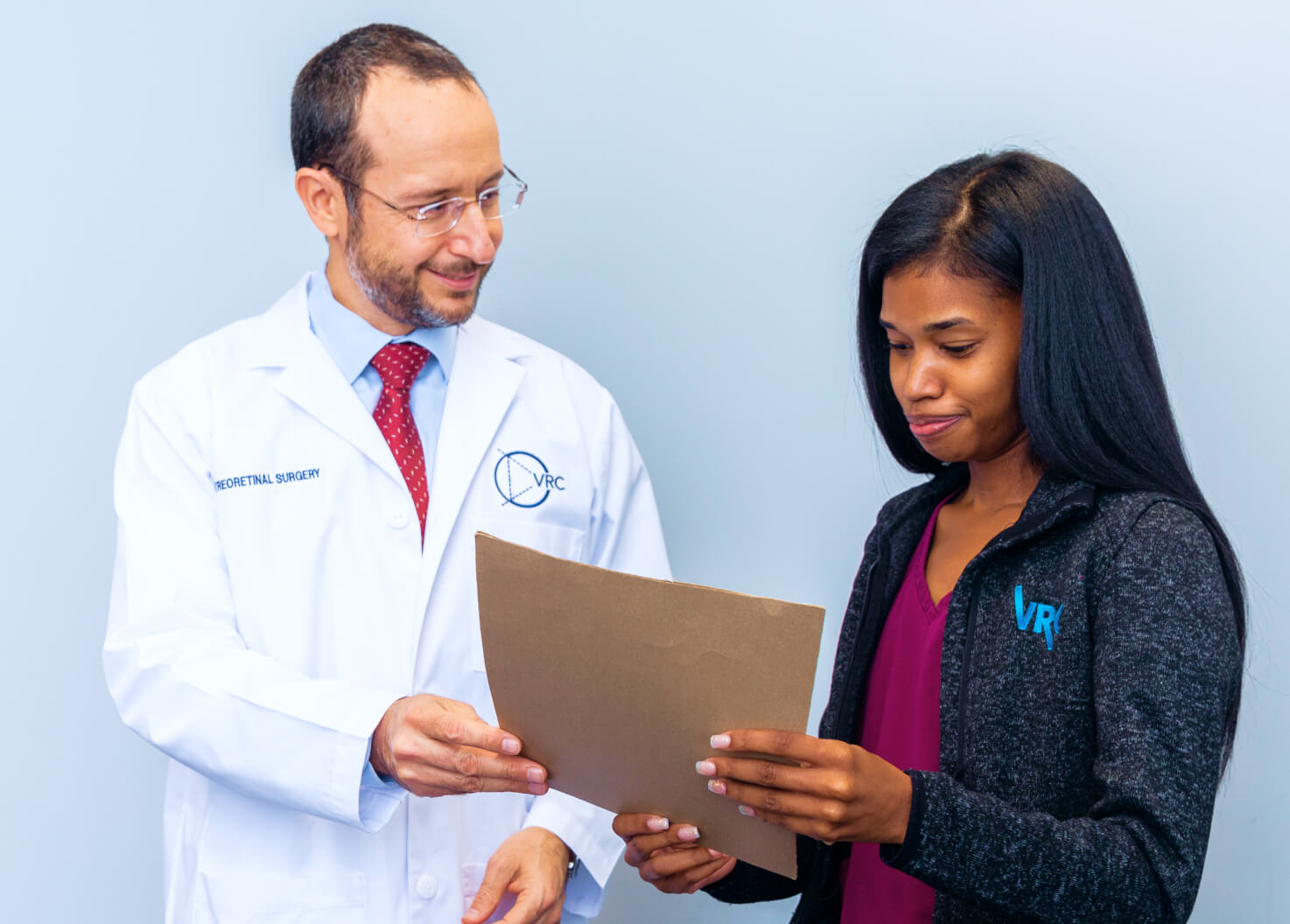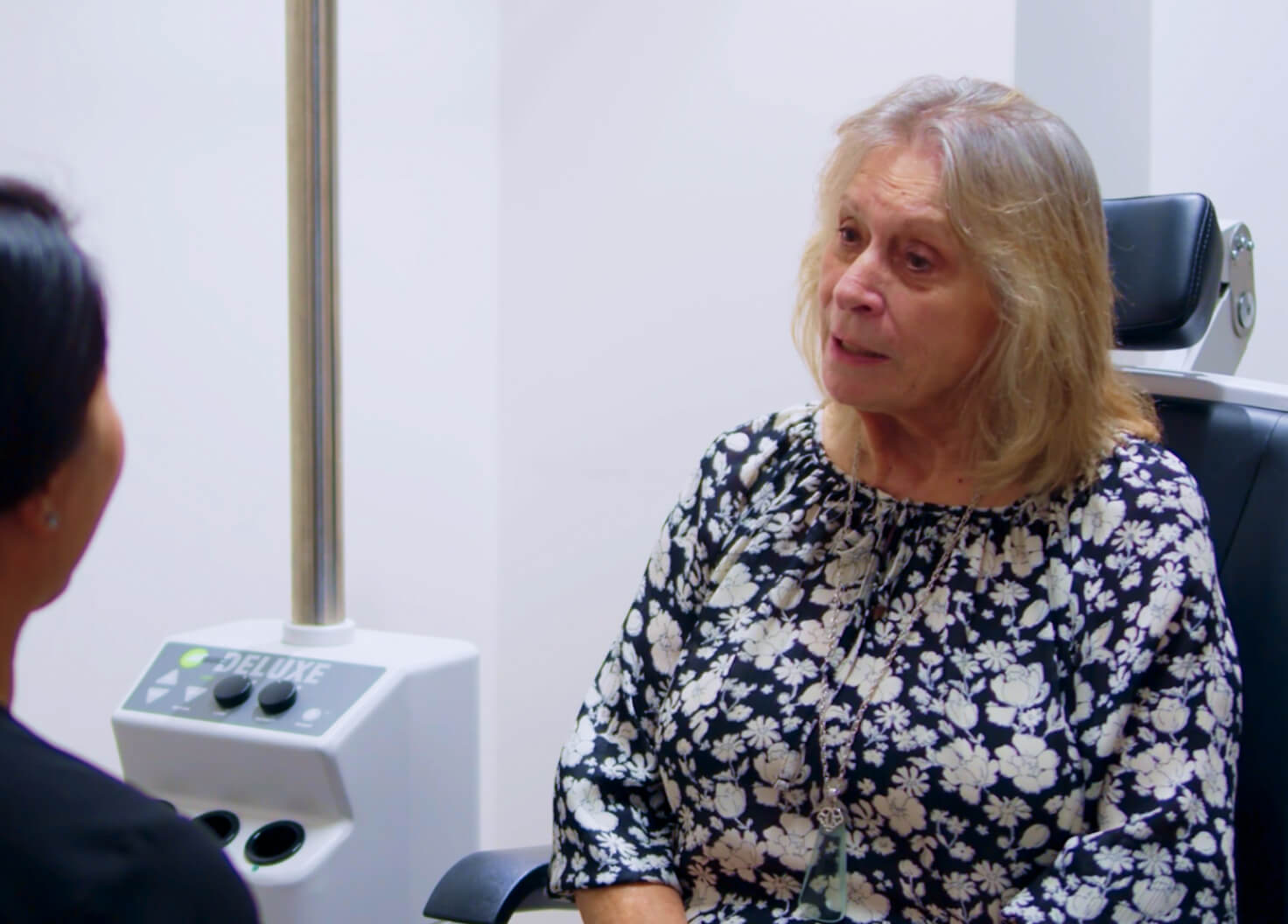
Become a part of something bigger.
Any medicine, device, or treatment that's been approved for public use starts with a clinical trial. In our efforts to fight blindness worldwide, RCA Research leads studies that offer patients the opportunity to receive sight-preserving care that may change the face of retinal health.
Demystifying the four phases of a clinical trial
Phase I: Safety and Dosage
Phase II: Efficacy and Side Effects
Phase III: Efficacy and Monitoring of Adverse Reactions
Phase IV: Post Marketing SurveillancePhase I: Pharmacokinetics and pharmacodynamics
Phase II: Effectiveness of the drug's for a particular indications or condition and further safety data.
Phase III: Detailed data on the drugs effectiveness, benefits, and the range of possible adverse reactions.
Phase IV: Real-world use and long-term effectsPhase I trials are concerned primarily with establishing a new drug's safety and dose range; provides initial insights but not definitive data on efficacy. Establishes the most effective dose that causes the fewest side effects.
Phase II trials assess safety, monitor how a drug is metabolized, and gather initial data on efficacy; determine the effectiveness of an experimental drug on a particular disease or condition. Provides preliminary data on whether the drug works in people with a specific disease or condition.
Phase III trials assess efficacy and monitor adverse reactions; massive testing of a drug provides continued generation of data on a drug's safety and efficacy. Data from this phase is critical for FDA approval. Provides the bulk of information needed for the package insert and labeling of a medicine, after it has been FDA approved.
Phase IV: Safety and Efficacy; monitor the drug's long-term effectiveness and impact on patients' quality of life and to detect any rare or long-term adverse effects.

You can help change the world
The trials we're conducting are changing the face of retinal care, which ultimately impacts whole-body health. It is only through patient participation that a better future becomes possible.
